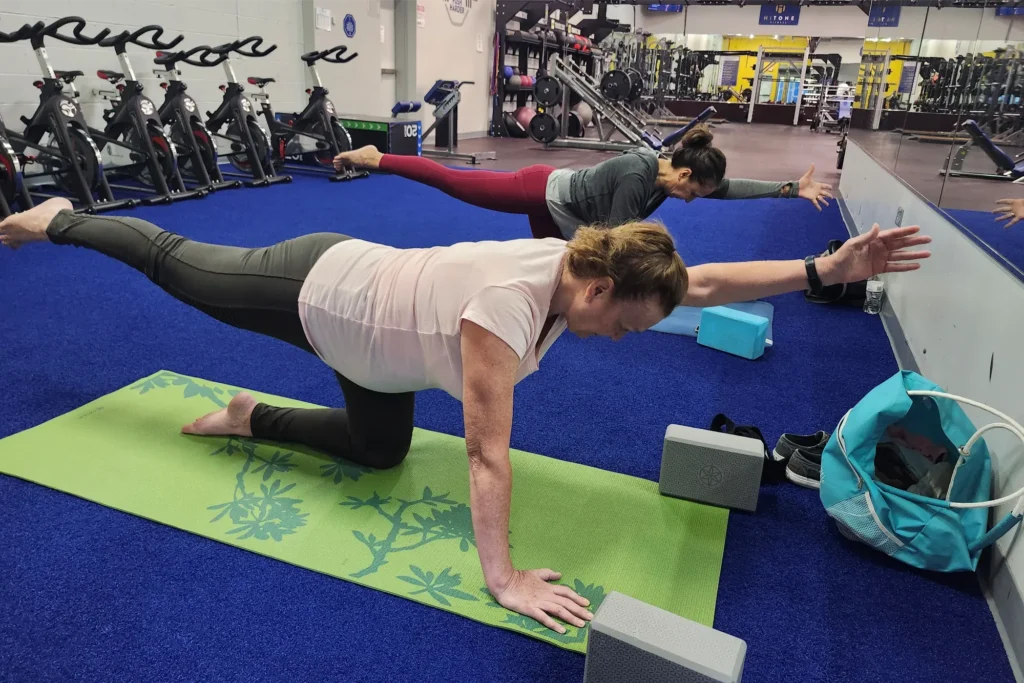Celebrated for its myriad health benefits, including improved flexibility, stronger muscles, better stress management, and enhanced mental clarity, yoga appears to be a gentle and inclusive practice.
However, for many beginners, yoga can present unexpected challenges that may seem daunting at first. Understanding these difficulties and addressing them can transform yoga from a daunting task to an enjoyable and enriching daily activity.
The basics of yoga
At its core, yoga is a holistic discipline originating from ancient India, combining physical postures (asanas), breath control (pranayama), meditation, and ethical precepts. Its ultimate goal is not just physical improvement, but achieving greater harmony between mind and body, leading to spiritual enlightenment.
Common challenges
Many new yogis are surprised by the physicality of yoga. Though it looks serene, yoga demands strength, flexibility, and balance.
Beyond the physical aspects, yoga is a mental exercise in patience and focus, often challenging one’s ability to quiet the mind and stay present.
Physical challenges
Flexibility issues: New practitioners often struggle with flexibility, which can be discouraging when they are unable to perform poses that require bending and stretching.
Strength limitations: Yoga requires a surprising amount of strength. Poses like Chaturanga or arm balances can be particularly challenging for those who have not yet developed their core and upper body strength.
Mental challenges
Patience and persistence: Yoga is a journey, not a destination. Learning to accept where you are in your practice and patiently working through difficulties is crucial.
Overcoming frustration: It’s common to feel frustration when progress seems slow or poses are difficult to master. Learning to overcome these feelings is part of the practice itself.
Why yoga feels hard
Many beginners enter yoga with expectations shaped by social media or stories of transformative experiences, only to find the reality much more demanding.
Without proper instruction, beginners may feel lost, unable to understand how to adjust their practice to their current abilities and goals.
Expectation vs. reality
It’s vital for beginners to set achievable goals, recognizing that improvement comes with time and consistent practice, not overnight.
The role of guidance
Guidance from a knowledgeable teacher is invaluable. They can offer modifications, encouragement, and insights that are crucial for a safe and effective practice.
This content sets the stage for beginners to approach yoga with a well-rounded understanding, acknowledging its challenges while also appreciating its profound benefits.
If you are looking for beginner-friendly yoga classes in Sanford, get your 3-day free pass at HiTone Fitness. With this free pass, you will be able to get into the world of yoga supported by expert guidance through every step of the process.
Overcoming obstacles
Embarking on a yoga journey can be riddled with challenges, but overcoming these obstacles is not only possible, it’s also incredibly rewarding.
The first step is recognizing that each practice session is a step towards improvement, no matter how small. Beginners should embrace a mindset that views difficulties as opportunities to learn and grow, rather than setbacks.
Benefits of persisting with yoga
Persisting with yoga can bring transformative benefits to both body and mind. As beginners push through initial barriers and continue their practice, they start to notice significant changes:
- Physical benefits: Regular yoga practice increases flexibility, builds muscle strength, improves balance, supports joint health, and enhances cardiovascular functioning. It’s also a powerful tool for pain relief, especially for chronic conditions like lower back pain.
- Mental and emotional benefits: Yoga is renowned for its ability to reduce stress and anxiety. It promotes a greater connection between mind and body, leading to enhanced mental clarity and calmness. Regular practice also boosts mood through the release of endorphins and helps develop greater mindfulness in daily life.
As males more often than beginners in yoga, here’s a men’s guide on what to wear to yoga class for maximum comfort.
Final thoughts
Yoga is more than just a physical exercise; it is a lifelong journey that encompasses mental, emotional, and spiritual growth. While the path may be challenging, especially for beginners, the rewards of persisting are immense and life-changing. By setting realistic goals, utilizing proper guidance, and embracing a patient and open-minded approach, anyone can overcome the initial hurdles of yoga and make it an enriching part of their daily life.





